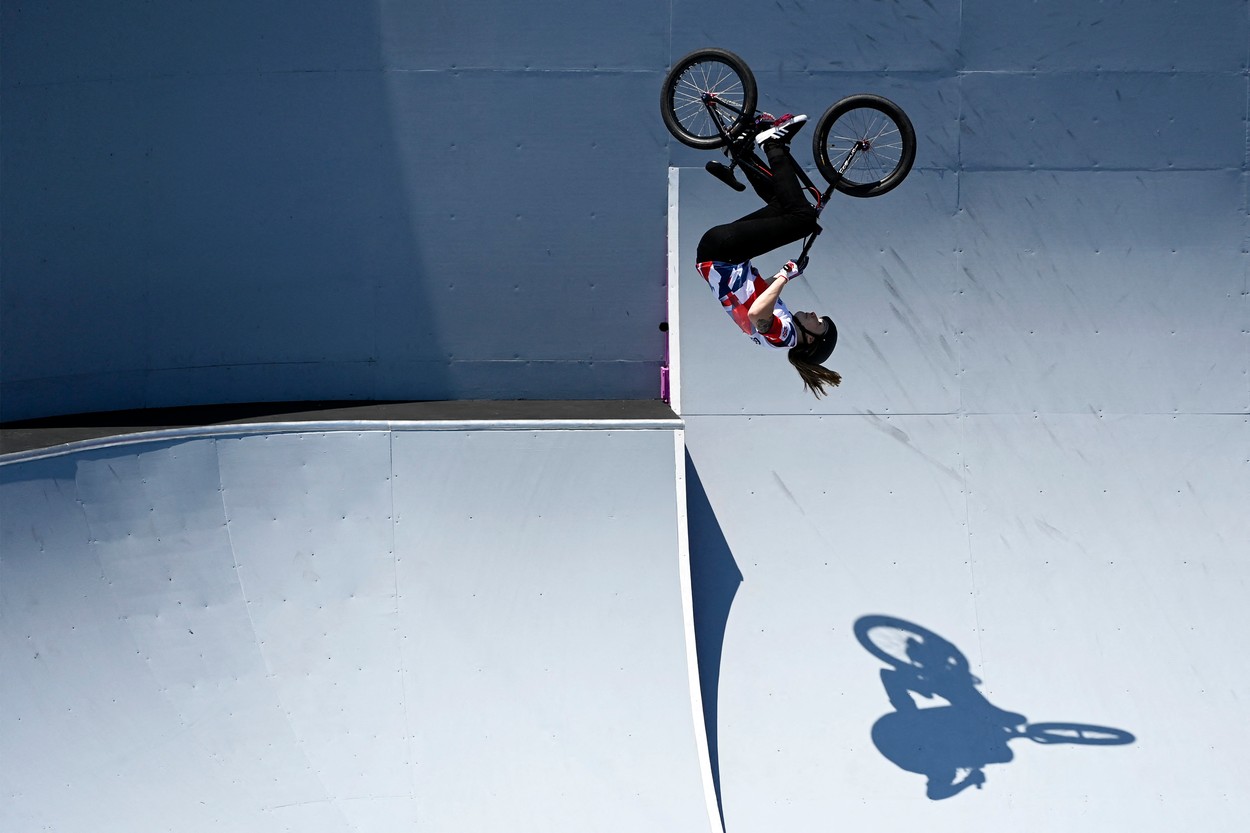That is quickly changing, though. Following the Olympic Games in Tokyo this summer, BMX freestyle seems to have firmly established its place on the map, with prominent sporting organisations looking to invest. So let’s take a quick look at this historic moment in competitive BMX and where it’s likely to go in the coming years.

Freestyle for the first time
Although BMX racing has been on the Olympic programme since Beijing 2008, the Tokyo 2020 games marked the first-ever appearance of BMX freestyle. Unlike other disciplines, where the speed with which an athlete can get from A to B determines the medals, BMX freestyle winners are chosen according to criteria judged by a panel of experts.
For those new to the sport, judging can take some getting used to. The riders doing the most flips and spins don’t necessarily win the competition. In order to win BMX freestyle, it’s crucial to stand out, perform tricks that no one else can do, and find lines that no other rider is capable of. Of course, this all has to be accomplished in under a minute and without ending up in a crash. Styles points count for a lot too, judges are keeping a keen eye on how smooth the riders’ landings are, how many mistakes they make, how many tricks are performed, and the level of originality in the composition.
The first-ever BMX Freestyle Olympic gold medallists are…
All in all, it makes for some seriously entertaining watching, and this year’s inaugural event did not disappoint. Australia’s Logan Martin captured gold in the men’s event—and justified his hard work and investment over the last several years. The diehard enthusiast was so determined to win the first men’s gold medal when BMX freestyle made its Olympic debut that he had a training arena built in his own backyard.

“I saw that the level of BMX – since it got into the Olympics – was rising fast,” he explained to The Guardian earlier this year. “I didn’t have a training facility around me, I was just riding local concrete skate parks. I figured if I wanted to get to the Olympics, I needed my own training facility – so I built one.”
Ultimately, the Queenslander proved that he is, indeed, in a class all of his own. His smooth-sailing first run was enough to claim gold. Then, having already established his merits, Martin put on a show in the opening stages of his second run, before stopping in the middle of the arena and raising his hands.
Great Britain’s Charlotte Worthington, meanwhile, recovered from a fall on her first run to win a thrilling gold in the women’s BMX park freestyle Olympic final. The 25-year-old, who gave up work as a chef to focus on the sport in 2017, delivered an action-packed sequence to snatch gold on her second run.
Worthington told BBC Sport she had been “sweating it out in the kitchen for over 40 hours a week and barely had any time or energy to ride”. The decision to focus on BMX came with what she called a “lifestyle change”, and that personal development in her life away from the bike had laid the framework for her to sharpen her skills on it. And whatever she is doing is clearly working, she has now won British, European and Olympic titles.

British Cycling vows to invest in BMX
Undoubtedly inspired by Worthington’s success and that of her teammate Declan Brooks, who added a bronze in the men’s event, British Cycling has announced plans to grow BMX freestyle following Team GB’s success at the Tokyo Olympics (they were the only nation to medal in both).
The organisation has said they will work with the existing BMX freestyle infrastructure in the country to create a national competition structure from 2022. That year is also marked for introducing an inclusive talent pathway through talent development centres linked to BMX facilities.
The future looks bright for BMX hopefuls
For the already initiated, there’s no denying the fact that BMXers know how to put on a massively engaging show and that, if given the coverage and support it deserves, the discipline is poised to grow exponentially. Notable for junior riders looking to grow in the sport, British Cycling has also vowed to engage with the national freestyle community to support grassroots development and grow awareness of how more young people can get involved, especially female riders. As the Brits continue to bolster their program and introduce new initiatives, it is likely that other countries with budding BMX communities will be inspired to follow suit.
That sounds like something worth celebrating to us!




